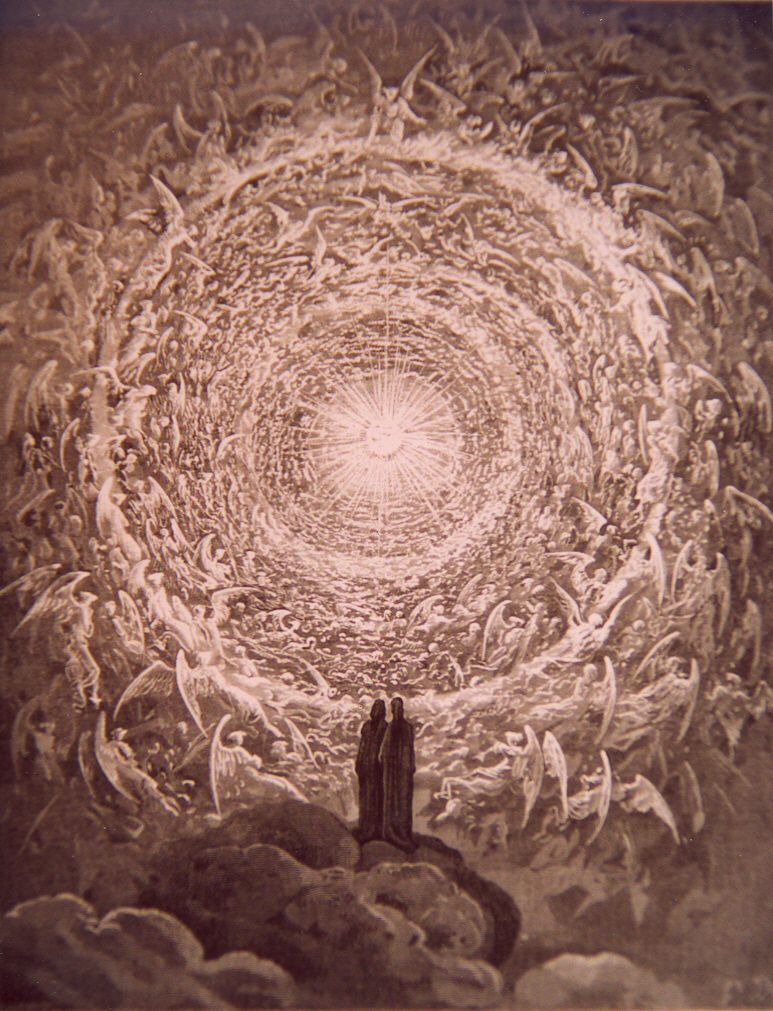
All Saints
by Rev. Albert F. Ernst, O.S.F.S.

This feast was instituted to give honor to all the saints, those canonized and those not canonized; those known and those unknown. The feast originated around the year 730. To make a beginning for the feast, to help it get started, Pope Gregory III consecrated a chapel in St. Peter's Basilica to all the saints. November first was the date set aside for this feast. About one hundred years later, Pope Gregory IV extended this feast to the Universal Church.
First on the list of the saints are those who have been formally canonized by the Church. A formal canonization is a definitive and infallible decree by the Holy Father that the person in question is in heaven. The first person to have been formally canonized was St. Ulrich, Bishop of Angsburg, Germany. This was in the year 933.
Since that time, canonizations have become the exclusive privilege of the Pope. Before 933, local bishops canonized holy people, but in a less formal way. The total numbers of saints have been formally canonized since the year 933 has grown rapidly. Pope John Paul II alone, canonized more saints during his pontificate than all of the popes before him. Saints come from all walks of life.
Just
to mention a few:
St. Bonaventure, the Franciscan, was a cardinal.
St. Alphonsus Liguori, the Redemptorist, was a bishop
St. John the Baptist Vianney, a priest, a country pastor.
Mother calvini, was the foundress of the Mission Sisters of the Sacred Heart.
Mary Francis of the Five Wounds (Anna Galbo) was a priests' housekeeper.
Louis IX of France was a king.
Elizabeth of Portugal was a queen.
Benedict Labre, to use a modern term, was a hitch hiker.
Isadore was a farmer.
Zita was a servant girl.
In addition to the list of formally canonized saints there is a list, a much longer one of saints equivalently canonized. In this list are all those whose cult or veneration was immemorial, I.e. over one hundred years old when Pope Urban VIII laid down the stringent rules for canonization that took place in 1634. In this list are all those to whom the Holy Father has given a special feast day on the calendar of the Universal Church even though there was no formal decree. In this group are men like St. Boniface, St. Augustine, St. Patrick and hundreds of others. These great saints were never formally canonized.
In this list of equivalent canonizations are those whom bishops set upon the altar for special veneration during the first one thousand years. In these two groups there are more than seven thousand saints. According to the Book of Saints published by the Benedictines of Panisgate, a third and far larger group is made up of the saints in heaven who have not been canonized at all by a formal canonization or by an equivalent canonization. To these may be assigned the title, "The Unknown Saints."
No one should be overconfident of his own salvation. There is only one way of getting to heaven and that is by getting sanctifying grace and by possessing it at the instant of death. We receive sanctifying grace for the first time at Baptism. The good way of making certain of having sanctifying grace at the moment of death is outlined in the Gospel of All Saints Day - follow the eight Beatitudes. They form a ladder standing on earth and reaching to heaven. There are eight steps in this ladder, and the steps are spaced apart. Nobody can reach from one rung to the other by himself. Everybody must be helped by God to climb from one step to another.
The
first three Beatitudes point out the obstacles in the way of perfection; namely,
the love of riches, the desire of honor, and the desire of pleasures.
1. "Blessed, (happy, well-off), are the poor in spirit, for theirs is the
kingdom of heaven".
2. "Blessed, (happy, well-off), are they who mourn, for they will be comforted".
3. "Blessed, (happy, well-off), are the meek, for they will inherit the land".
The second group of three Beatitudes describe the proper norm of conduct towards God, our neighbor and ourselves; namely justice, mercy and purity.
4. "Blessed, (happy, well-off),
are they who hunger and thirst for righteousness, for they will be satisfied.
5. "Blessed, (happy, well-off), are the merciful, for they will be shown mercy.
6. "Blessed, (happy, well-off), are the clean of heart, for they will see God.
The last two Beatitudes contain our Lord's invitation to the highest degree of perfection - preaching the Gospel and spreading the spirit of God by word and example and accepting suffering as a reward for spreading the gospel and the spirit of God.
7. "Blessed, (happy,
well-off), are the peacemakers, for they will be called children of God.
8. "Blessed, (happy, well-off), are they who are persecuted for the sake of
righteousness, for theirs is the kingdom of heaven.
This is true, really true because our Lord said, "No one can come to Me unless the Father, who sent Me, draws him" (John 6:44).
Pray then that God will give you the grace to follow the Beatitudes and that He will give you the final grace of eternal happiness.
If you find this
material valuable, consider a tax deductible gift to support this site.
The DaCapo Foundation • 2402 Tricia Ct. • Vienna VA 22181